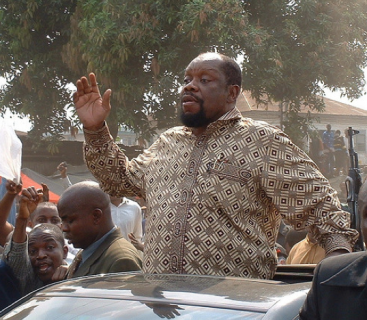Rutashubanyuma
JF-Expert Member
- Sep 24, 2010
- 219,470
- 911,172
at 78 Ojukwu has called it a day somewhere in London hospital. he will be remembered for leading his Igbo tribe to secede against the rest of nigeria.........................nyerere also sympathized with his cause by being the only African country to recognize Biafra as a new nation in the making............................

ported earlier this morning... breakaway Republic of Biafra leader Chukwuemeka Ojukwu died in a London hospital after a stroke. The Nigerian colonel and politician served as the leader of the seccessionist Biafra republic from 1967 to 1970 - a move that was at the center of the Nigerian Civil War, also known as the Nigerian-Biafran War, which would eventually see the deaths of 1 to 3 million civillians and millitary personnel, a few years after Nigeria gained its independence from Britain in 1960.

ported earlier this morning... breakaway Republic of Biafra leader Chukwuemeka Ojukwu died in a London hospital after a stroke. The Nigerian colonel and politician served as the leader of the seccessionist Biafra republic from 1967 to 1970 - a move that was at the center of the Nigerian Civil War, also known as the Nigerian-Biafran War, which would eventually see the deaths of 1 to 3 million civillians and millitary personnel, a few years after Nigeria gained its independence from Britain in 1960.







